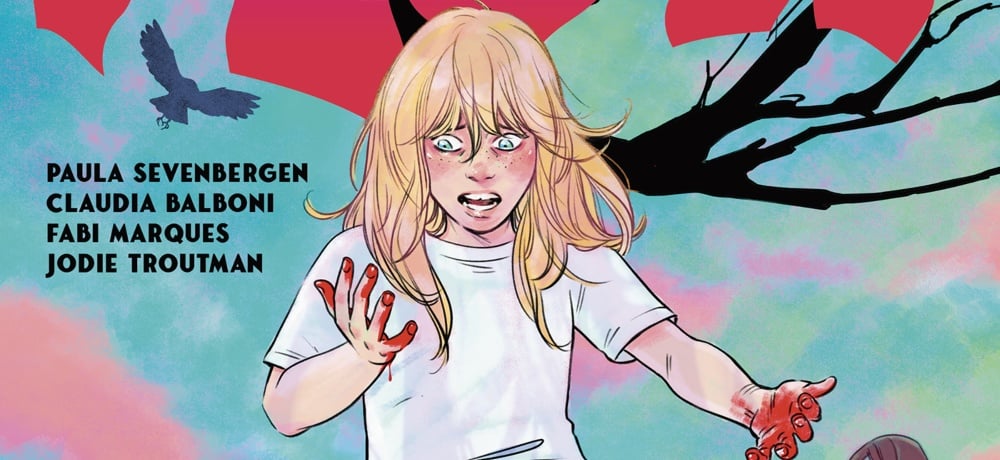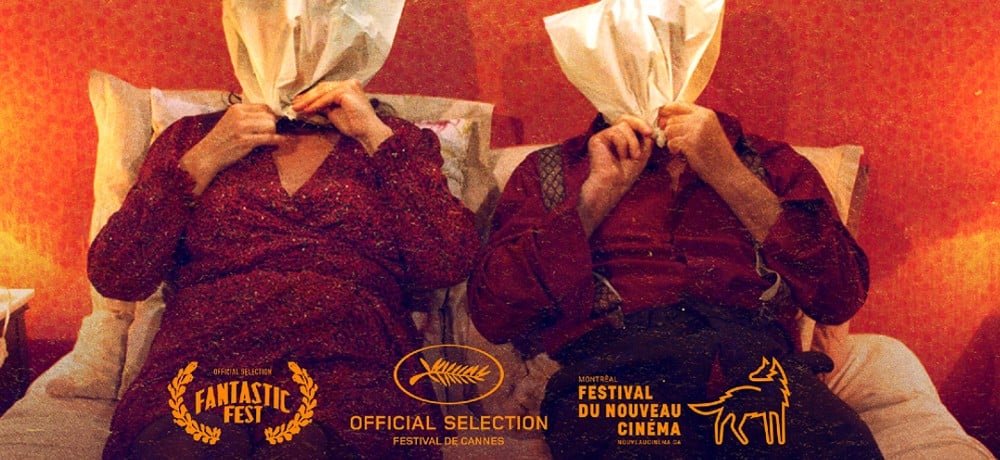






Last month, French filmmaker Jean-Christophe Meurisse celebrated the arrival of his latest project, Bloody Oranges, on VOD here stateside courtesy of Dark Star Pictures. Daily Dead recently had the chance to briefly catch up with Meurisse about his wildly shocking dark comedy that weaves together several stories about how society continues to fail us all collectively that culminates in extraordinary fashion. Here’s what Meurisse had to say about his approach to the story of Bloody Oranges, how the film isn’t specific to society in France, and more.
What was the inspiration behind the stories being told in Bloody Oranges?
Jean-Christophe Meurisse: Bloody Oranges was inspired by three real events that happened in the world. These three news items appealed to me because they all told the story of a monster. Society creates monsters, at all levels of the population, and it is this subject that interested me.
I know that so much of your film is focused on examining issues in France, but was it conscientious to you at all that these things would also resonate with viewers from all over the world since it feels like most of our countries are dealing with similar issues?
Jean-Christophe Meurisse: I would like to point out that one of the stories I wrote into this film happened in the United States. A young woman was raped by a sex maniac and, after she managed to free herself and escape, went back to cut him up and make him eat his testicles. So, I think the monsters I describe can arise in any modern society.
Your film uses comedy to explore some very dark subject matter—do you find that using comedy helps audiences embrace these kinds of elements that might otherwise be hard to take?
Jean-Christophe Meurisse: I'm not interested in injecting humor into the violent sequences. I think I'm most interested in multi-genre. In one day you can go through a multitude of emotions. You can wake up sad and then laugh at a joke or a funny situation, and end your day satisfied and happy. Navigating between different emotions is something that interests me and that I have been exploring for 15 years now in theater and film.
There's great rhythmic timing on how so much of the dialogue is delivered in Bloody Oranges (almost like these characters are doing a verbal dance)—how did you approach working with your cast on their performances to nail that kind of timing?
Jean-Christophe Meurisse: I worked with a lot of improvisation within a very defined framework. We did a lot of rehearsals beforehand during which I gave the actors indications about the intentions of the scene. On the other hand, I would also let them choose their words, because I like them to surprise me, otherwise I get bored! On the set, I would let the camera run for hours, as there is a freedom in that kind of improvisation because the actors know perfectly the stakes of the sequence. They focus not on their state, but on the words they say, and that gives rise to the accuracy I want to achieve.
What are you hoping that audiences take away from Bloody Oranges when they watch it?
Jean-Christophe Meurisse: I leave the spectators free to retain or to feel what they want. I hope that they will have emotions!
I'm a big believer that whenever you do something creatively, you put a piece of yourself into that project, but you also take a piece of it with you once you're done. What was your biggest takeaway from working on Bloody Oranges, whether it's something that impacted you personally or professionally, or maybe it was a mix of both?
Jean-Christophe Meurisse: It's hard to say because I'm not sure I have the distance from my Bloody Oranges experience yet. On the other hand, I know what I want to continue to explore in directing and it confirmed my interest in monsters, a subject I will continue to tackle in my next film.